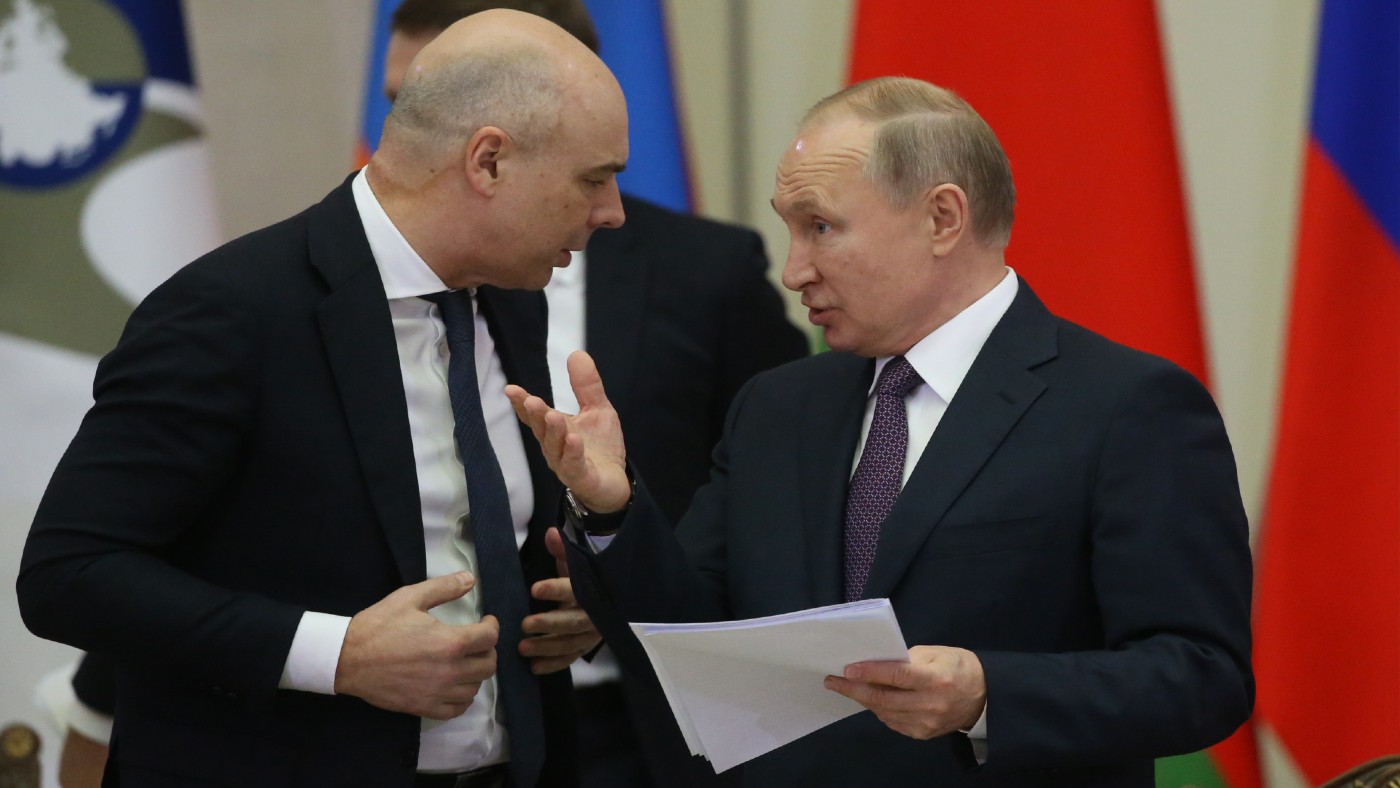Russia’s debt default: what impact will it have on the Putin regime?
Last week, the country was pushed into official default for the first time in decades

A free daily email with the biggest news stories of the day – and the best features from TheWeek.com
You are now subscribed
Your newsletter sign-up was successful
For months, Russia has found paths around “ever tougher Western sanctions that shut down payment routes to overseas creditors”, said Bloomberg. It has finally run out of road. Last Sunday, the grace period on about $100m of eurobond interest payments, due on 27 May, expired – pushing the country into official default.
This has only happened twice before: under the Bolsheviks in 1918, and during the financial chaos of the Yeltsin era in 1998. The default is therefore “historic”. It is also highly unusual, since Russia is both willing and financially able to make the payments, but is effectively prevented from doing so by the US Treasury. The country’s finance minister, Anton Siluanov, has dismissed the situation as a “farce”. But, even if “mostly symbolic for now”, the default is still “a grim marker in the country’s rapid transformation into an economic, financial and political outcast”.
The more pressing point for Vladimir Putin’s opponents, said Lex in the FT, is that “Moscow has so far circumvented the West’s efforts to drain its coffers”. Russia earned nearly $100bn from oil and gas exports during the first 100 days of the war with Ukraine – largely thanks to Europe’s continued reliance on Russian gas, and its ability to find new buyers for its oil in India and China.
The Week
Escape your echo chamber. Get the facts behind the news, plus analysis from multiple perspectives.

Sign up for The Week's Free Newsletters
From our morning news briefing to a weekly Good News Newsletter, get the best of The Week delivered directly to your inbox.
From our morning news briefing to a weekly Good News Newsletter, get the best of The Week delivered directly to your inbox.
The solution proposed at this week’s G7 meeting is “a price cap for Russian oil sales”, which theoretically would be a win-win for the West, since it would keep Russian oil flowing into the world economy, while reducing “the country’s ability to pay for its war in Ukraine”. In practice, though, the difficulties inherent in tracking the “provenance” of fuel exports would make any cap “devilishly hard” to enforce.
Meanwhile, a retaliatory cut-off in natural gas supplies to Europe would cause havoc. All the more so, said The Economist, since “the threat of gas rationing” is already “looming” in the EU’s economic powerhouse, Germany.
Emboldened by the recovery of the rouble, and strong oil and gas revenues, Putin has claimed that sanctions are “a double-edged sword” that will prove more painful for the West than for Russia, said Ben Marlow in The Daily Telegraph. But even this supposedly “symbolic” debt default could deal “a heavy blow” to his plans. “A regime that thrives off propaganda” will be desperate to avoid any scenario that adds to the impression that Russia “has been weakened by sanctions”.
The default could also have wider ramifications, since it could affect the country’s debt ratings for years – making it difficult to access financing and more costly to borrow, even when hostilities end. Ultimately, “Moscow could effectively be shut out of the global financial system for years”.
A free daily email with the biggest news stories of the day – and the best features from TheWeek.com
-
 The environmental cost of GLP-1s
The environmental cost of GLP-1sThe explainer Producing the drugs is a dirty process
-
 Greenland’s capital becomes ground zero for the country’s diplomatic straits
Greenland’s capital becomes ground zero for the country’s diplomatic straitsIN THE SPOTLIGHT A flurry of new consular activity in Nuuk shows how important Greenland has become to Europeans’ anxiety about American imperialism
-
 ‘This is something that happens all too often’
‘This is something that happens all too often’Instant Opinion Opinion, comment and editorials of the day
-
 Currencies: Why Trump wants a weak dollar
Currencies: Why Trump wants a weak dollarFeature The dollar has fallen 12% since Trump took office
-
 Elon Musk’s starry mega-merger
Elon Musk’s starry mega-mergerTalking Point SpaceX founder is promising investors a rocket trip to the future – and a sprawling conglomerate to boot
-
 TikTok: New owners, same risks
TikTok: New owners, same risksFeature What are Larry Ellison’s plans for TikTok US?
-
 Will SpaceX, OpenAI and Anthropic make 2026 the year of mega tech listings?
Will SpaceX, OpenAI and Anthropic make 2026 the year of mega tech listings?In Depth SpaceX float may come as soon as this year, and would be the largest IPO in history
-
 Leadership: A conspicuous silence from CEOs
Leadership: A conspicuous silence from CEOsFeature CEOs were more vocal during Trump’s first term
-
 Ryanair/SpaceX: could Musk really buy the airline?
Ryanair/SpaceX: could Musk really buy the airline?Talking Point Irish budget carrier has become embroiled in unlikely feud with the world’s wealthiest man
-
 Powell: The Fed’s last hope?
Powell: The Fed’s last hope?Feature Federal Reserve Chairman Jerome Powell fights back against President Trump's claims
-
 Taxes: It’s California vs. the billionaires
Taxes: It’s California vs. the billionairesFeature Larry Page and Peter Thiel may take their wealth elsewhere